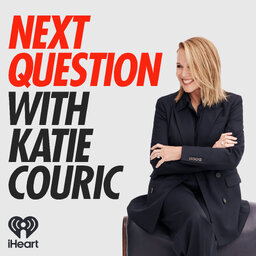Stanley Tucci does — and eats — it all
On this week’s episode of Next Question with Katie Couric, Katie chats to everyone’s favorite pandemic sauce man, Stanley Tucci. They talk about Stanley’s new travel/food series on CNN called “Searching for Italy,” as well as his new movie, “Supernova,” co-starring Colin Firth. They also talk about Stanley’s upcoming new book (“Taste: My Life Through Food”), the origin story of his foodie obsession, his enviable physique, and how those mixology videos on Instagram started.
Learn more about your ad-choices at https://www.iheartpodcastnetwork.com
 Next Question with Katie Couric
Next Question with Katie Couric


